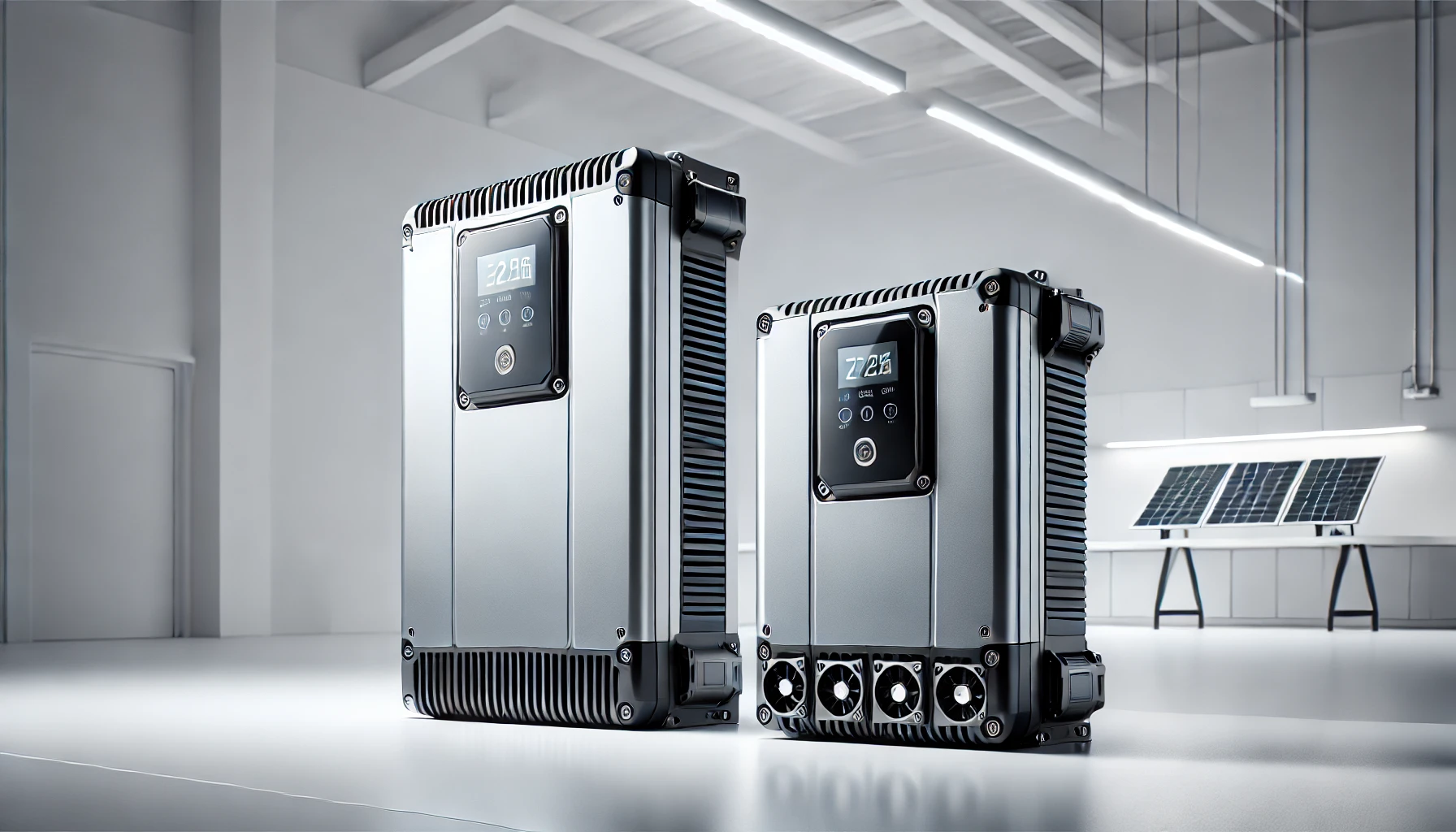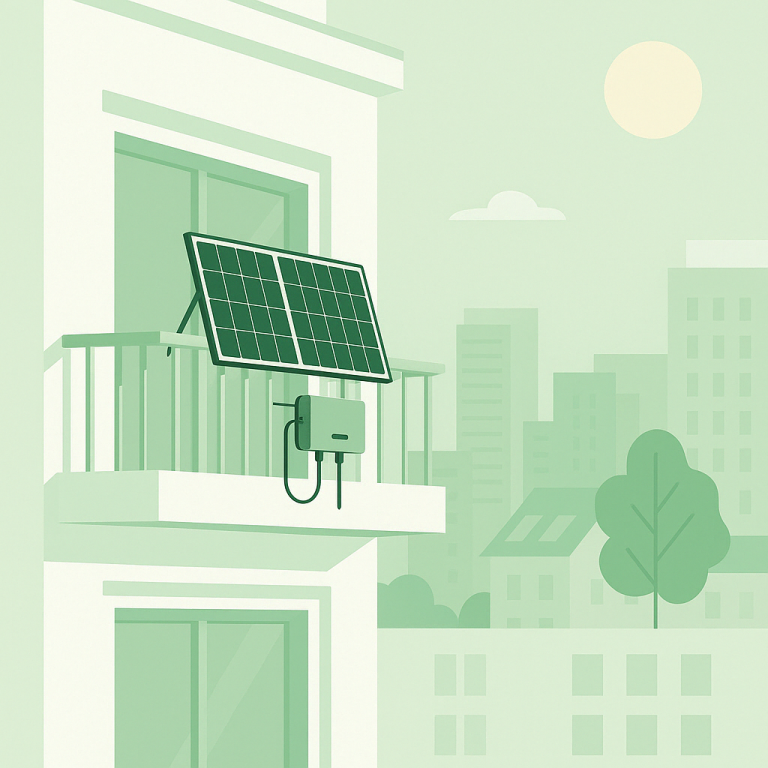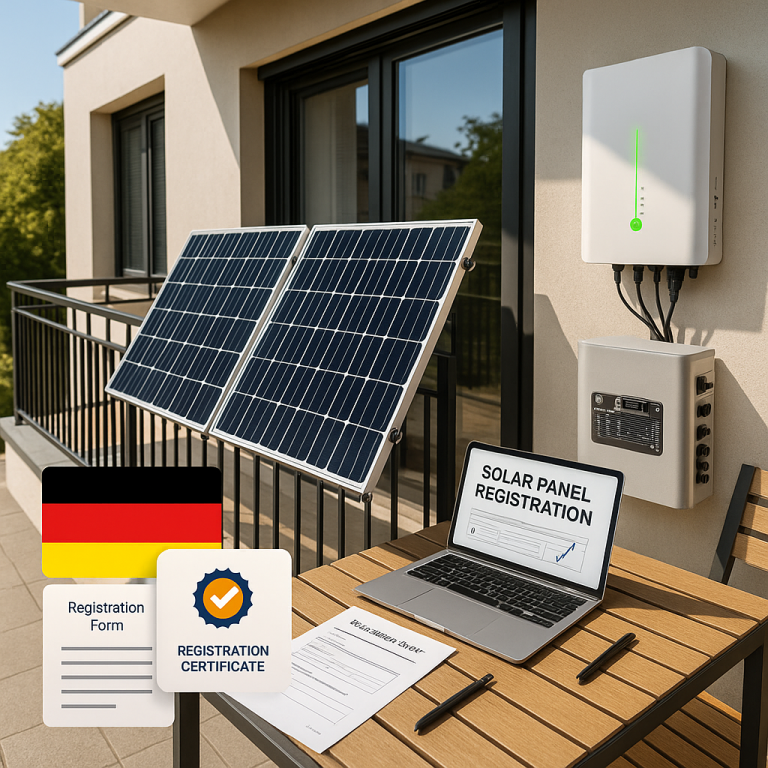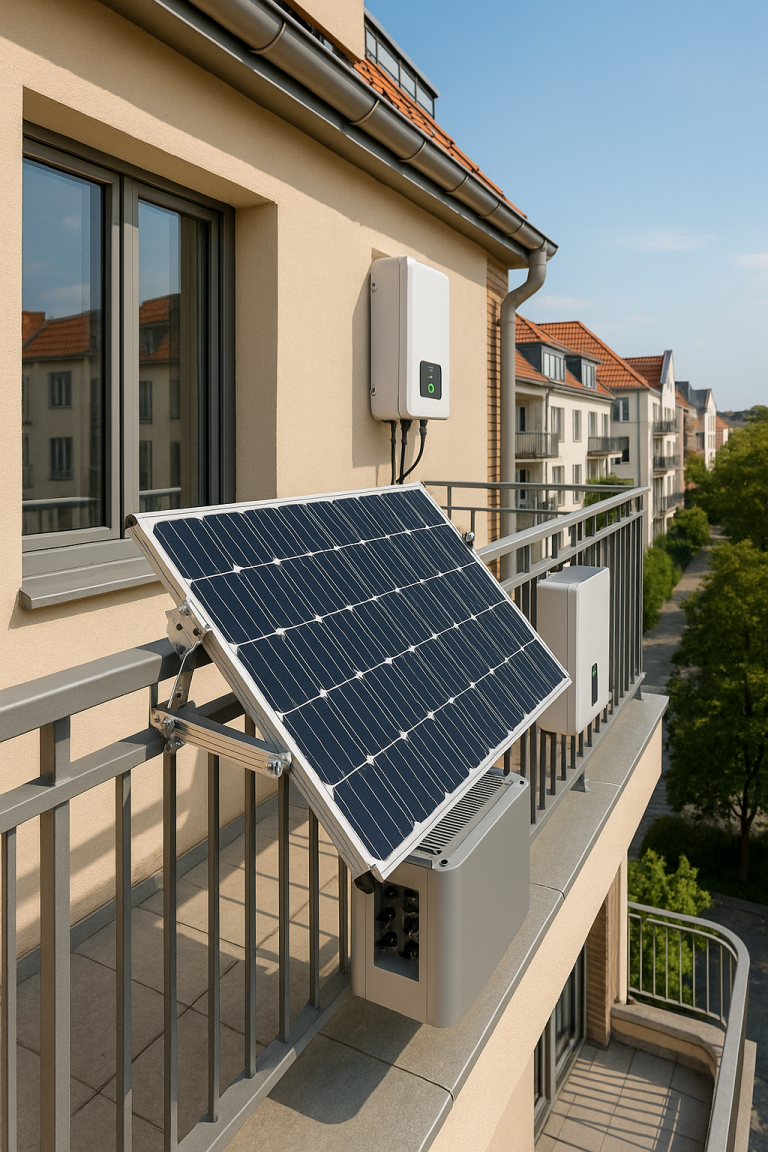1. Introduction: The Role of Inverters in Residential Solar Systems
In any solar power system, the inverter plays a crucial role. It is the device responsible for converting the direct current (DC) produced by solar panels into alternating current (AC), which is the type of electricity used by most household appliances. As residential solar installations become more widespread across Europe, selecting the right inverter type becomes critical to achieving optimal system efficiency, energy savings, and long-term reliability.
Among the most common inverter types in residential solar systems are the micro inverter and the hybrid inverter. Both have their advantages and are suited to different types of installations and user needs.
In this article, we will compare micro inverters and hybrid inverters, and explore which one is best suited for residential solar systems. By the end of this guide, you will have a clearer understanding of the features, benefits, and considerations for choosing the right inverter for your home.
2. What is a Micro Inverter?
A micro inverter is a small, individual inverter that is installed at each solar panel in a solar system. Instead of having one large inverter for the entire array, each panel has its own inverter that converts the DC power generated by the panel into AC power.
Key Features of Micro Inverters:
- Individual Panel Monitoring: Each panel operates independently, so the performance of one panel does not affect the others.
- Higher Efficiency: Micro inverters maximize energy output, especially in situations where some panels may be shaded or receive different amounts of sunlight.
- Easier Installation: Since each panel has its own inverter, the system can be expanded more easily by simply adding additional panels with micro inverters.
- Safer Operation: Micro inverters work at a lower voltage than traditional string inverters, which reduces the risk of fire or electrical issues.
Benefits of Micro Inverters:
- Increased energy harvest: By optimizing each panel independently, micro inverters can ensure higher energy production, particularly in situations where shading or panel orientation affects performance.
- Greater system flexibility: As you can add micro inverters to individual panels, the system is more adaptable to changes and expansions, making them a great option for balconies or rooftops with limited space.
- Improved system longevity: With individual panel monitoring, micro inverters can also reduce the likelihood of system failure, as issues can be easily identified and addressed.
3. What is a Hybrid Inverter?
A hybrid inverter, on the other hand, is a more centralized system that combines the functionality of a traditional inverter with that of a battery management system (BMS). Hybrid inverters are capable of managing the energy flow between solar panels, the grid, and battery storage systems.
Key Features of Hybrid Inverters:
- Energy Storage Integration: Hybrid inverters allow you to connect a battery storage system, so excess energy generated during the day can be stored for use at night or during power outages.
- Grid Compatibility: They are designed to interact with both the solar array and the grid, allowing you to send excess energy back to the grid, or store it for later use.
- Smart Energy Management: Many hybrid inverters have built-in energy management systems that prioritize the use of self-generated solar energy and optimize the amount of energy sent to the grid or stored in the battery.
Benefits of Hybrid Inverters:
- Cost savings: By storing excess solar energy in a battery, homeowners can use their own energy during periods of high electricity prices, reducing their reliance on the grid and lowering energy costs.
- Energy independence: With the addition of battery storage, hybrid inverters allow you to store energy for later use, helping you become less dependent on grid energy and more self-sufficient.
- Future-proof: Hybrid inverters can be more versatile, especially for those who may want to expand their system in the future by adding a battery or connecting to an electric vehicle (EV) charger.
4. Key Differences Between Micro Inverters and Hybrid Inverters
Now that we’ve looked at the basics of both micro inverters and hybrid inverters, let’s compare the key differences between the two.
| Feature | Micro Inverter | Hybrid Inverter |
|---|---|---|
| Energy Conversion | Converts DC to AC individually per panel | Converts DC to AC for entire array and stores excess energy in a battery |
| System Flexibility | Highly flexible, can expand by adding more panels | Can be expanded with battery storage or connected devices |
| Efficiency | High efficiency even in partial shading | Efficiency can be impacted by shading or system faults |
| Cost | Higher initial cost per panel | Lower initial cost per system, but higher installation costs for storage |
| Maintenance | Easier to maintain, issues are localized to panels | More complex, maintenance may require system-wide diagnosis |
| Energy Storage | No energy storage, purely converts energy | Can include storage for excess energy and grid interactions |
5. Which Inverter Is Best for Residential Solar Systems?
So, which inverter works best for a residential solar system? The answer depends on several factors, including the size of your system, your energy goals, and the design of your home.
✅ Micro Inverters
Micro inverters are ideal for:
- Homes with limited roof space or balcony installations where panels may be placed in different orientations or receive varying levels of sunlight.
- Users seeking higher energy production from each panel, especially in areas with frequent shading.
- DIY solar enthusiasts who want easy-to-install and scalable systems that can grow as their energy needs increase.
✅ Hybrid Inverters
Hybrid inverters are better suited for:
- Homeowners looking to incorporate energy storage and battery management into their solar system.
- Those who want energy independence and wish to store excess energy for use at night or during power outages.
- Larger households or businesses that require a more centralized system with the flexibility to integrate with the grid, battery storage, or EV chargers in the future.
6. How to Choose the Right Inverter for Your Home
Choosing the right inverter for your residential solar system ultimately comes down to your specific needs and goals. Consider the following factors when making your decision:
- Budget: Micro inverters typically have a higher initial cost per panel, while hybrid inverters have a lower initial cost but may require additional investment in battery storage.
- Energy goals: If you’re focused on maximizing energy production and efficiency, micro inverters may be the best choice. However, if you’re looking for energy independence and want to store energy, a hybrid inverter with battery storage is the way to go.
- Roof or balcony space: Limited space and varying sunlight conditions may make micro inverters the best solution, as they allow for individual panel optimization.
- Future scalability: If you plan to expand your system in the future with a battery or additional devices, a hybrid inverter is more adaptable to future upgrades.
7. Conclusion
Both micro inverters and hybrid inverters offer distinct advantages for residential solar systems. Micro inverters are an excellent choice for maximizing energy production and offering flexibility, particularly for smaller systems with shading issues or limited roof space. On the other hand, hybrid inverters provide greater control over energy storage and offer an ideal solution for homeowners seeking to become more energy-independent.
When choosing between the two, it’s essential to evaluate your unique energy needs, system size, and long-term goals to determine the best fit for your home.




